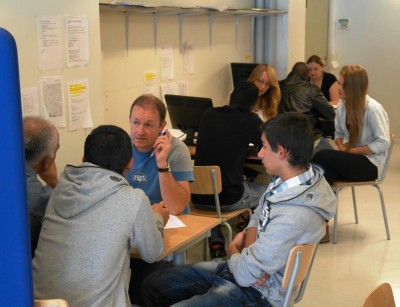A new report found immigrant workers in Norway are more vulnerable to social dumping than in any other Nordic country. Research foundation Fafo said Norway has the worst labour regulation regime in the region, with few opportunities for migrants to access collective bargaining agreements and unions.

The report, called Immigration and labour market integration in the Nordics found Norway had a comparatively high rate of labour immigration, low use of collective bargaining agreements, and the fewest unionized migrant workers. “The Nordic labour market is described as well- regulated, and it is,” author Anne Britt Djuve told newspaper Dagsavisen. “For Norway’s part, this is probably a truth with modifications.”
“Our labour regulation regime has bigger holes than in the other Nordic countries,” she explained. “We have the lowest agreement coverage, and the level of organization varies greatly from sector to sector. This is especially the case in the service industry, a sector where many labour immigrants work.”
More migrants
The Fafo report noted a significantly higher number of migrant workers have streamed into Norway since the EU enlargement in 2004, which does increase the risk of social dumping. In 2011, almost 50 percent of all European job migrants who moved to the Nordic countries came to Norway. Nevertheless, the report pointed to a number of measures common in the “Nordic model” missing from the Norwegian labour market.
For example, collective agreements apply automatically under Finnish and Icelandic law, but Norway only recently introduced the measure and only in four industries. Norway’s generous welfare system contributed to fewer immigrants joining trade unions. Wages considered extremely low in Norway are still very attractive to workers from countries like Estonia and Poland workers, especially when child benefits and cash welfare payments are added on top, said the report.
More exploitation
Alexander Golding from Catholic charity Caritas told Dagsavisen the exploitation of foreign workers was a growing trend. He said immigrants come to their migrant worker information centre every month with complaints about social dumping, including low wages, salary payments that haven’t been made, termination on the spot without reason, meaningless contracts and a lack of insurance for workplace accidents.
“Many who come to Norway don’t know the Norwegian language, culture or workplace rights, but are desperate for work,” Golding said. “Then they are in a very vulnerable situation. Too many of those who come to us don’t have employment contracts.”
He said the most important tactic to prevent social dumping was to inform foreign workers of their rights. “The workers are the first step in tackling social dumping,” Golding explained. “We need “community interpreters” who can help foreign workers with understanding their rights and obligations, how social and public services work, and see the value in joining unions.”
“More and more we’re seeing organized networks exploiting foreign workers, establishing and closing down businesses, and threatening people from speaking out,” he said. “It is also putting pressure on the wages and profitability of legitimate actors.”
newsinenglish.no/Emily Woodgate

